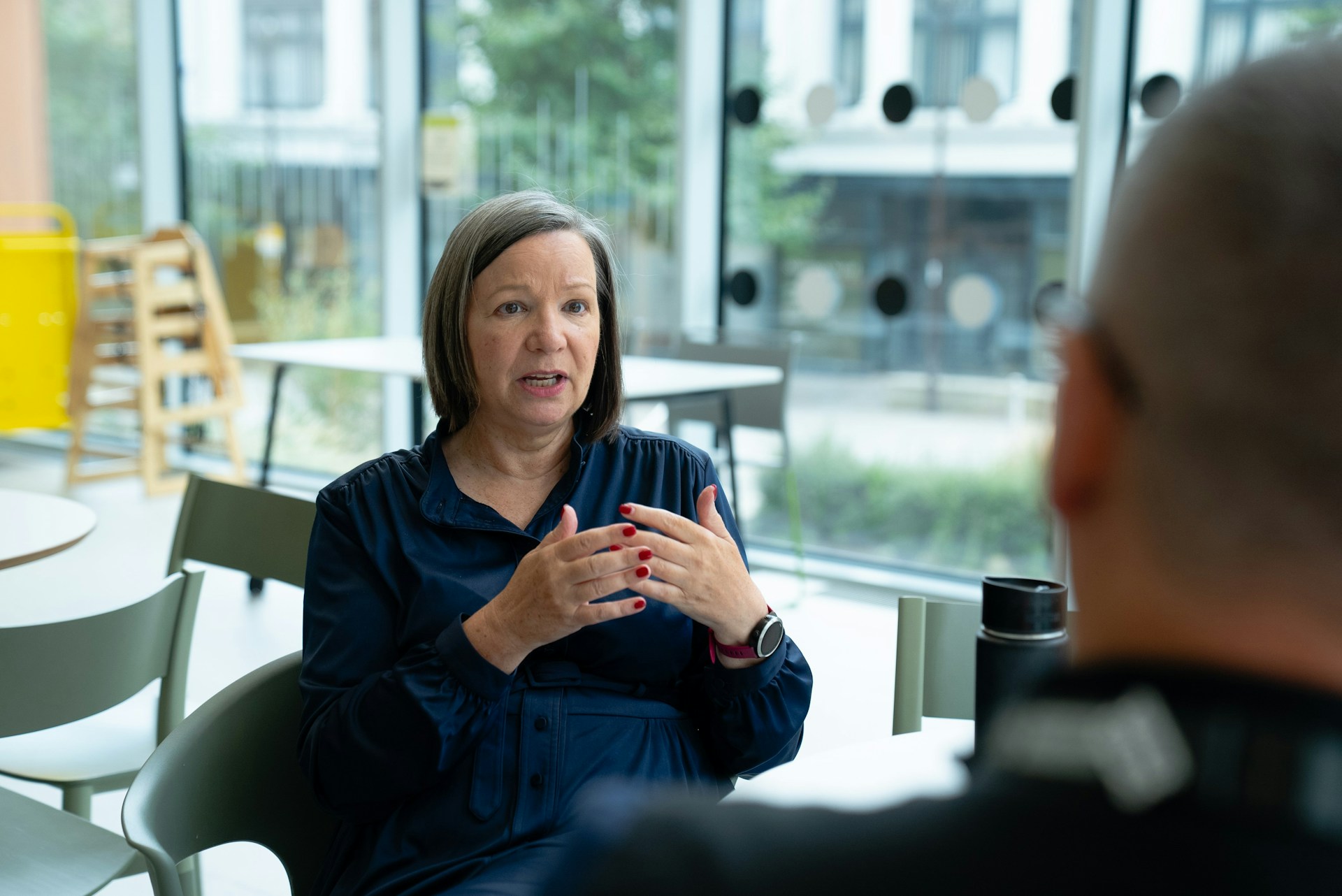From Founder to Employee: The Real Reasons Cinneah El Amin Went Back to Corporate Life

When Cinneah El Amin walked away from her corporate career to run her own business, it looked like the dream leap many ambitious professionals imagine. After all, she’d built a powerful personal brand around financial literacy and career growth through her platform, Flynanced, inspiring thousands of women to take control of their money and careers. But after two years of being her own boss, El Amin made a move few expected: she returned to a 9-to-5 job.
Her announcement on LinkedIn was met with surprise and support alike. “After 18 months of full-time entrepreneurship, I’m going back to corporate,” she wrote. For many founders, that statement might sound like a quiet admission of defeat. For El Amin, it was anything but.
In reality, her pivot back to a traditional job was a deliberate, strategic decision, one shaped by a deep understanding of her values, her audience, and the true cost of entrepreneurship. Her story offers a candid look at what happens when passion meets practicality, and how success sometimes looks different than expected.
The leap into entrepreneurship
Before launching her business full-time, Cinneah El Amin had already established a strong professional foundation. She spent several years building a career in product management and financial services, working in roles that honed her technical, analytical, and leadership skills. But outside of her day job, she began sharing her own money and career journey online, documenting how she grew her income from $40,000 to $200,000 within five years and achieved debt-free living.
What began as a passion project evolved into Flynanced, a platform designed to help women, particularly those working full-time, gain control of their finances and redefine what wealth and success look like. Through coaching, online resources, and partnerships, El Amin turned her side hustle into a thriving business.
The momentum was real. As her audience grew, so did her confidence in her ability to scale. Eventually, she left corporate America to pursue entrepreneurship full-time, a milestone that, to many, represents ultimate freedom. But as El Amin would later share, full-time entrepreneurship also came with trade-offs that aren’t often discussed publicly.
When freedom becomes pressure
Running a business is often framed as liberation from the constraints of corporate life. Yet El Amin discovered that entrepreneurship can introduce a new kind of pressure, the kind that never really switches off. “You’re responsible for everything,” she reflected during an interview with Money With Katie. “Your income, your clients, your growth, it all depends on you.”
Like many founders, she faced the reality of financial uncertainty. While Flynanced generated income, it couldn’t always match the stability, or scalability, of her former corporate paycheck. She also found that the administrative and operational demands of running a business left less time for the creative, mission-driven work that had motivated her in the first place.
Over time, the equation shifted. The independence she had gained began to feel more like isolation. The constant need to sell, produce, and maintain visibility took a toll. And when she weighed those challenges against the career opportunities waiting for her in the corporate world, the choice became clear.
The return to corporate
El Amin’s return to a 9-to-5 wasn’t about giving up, it was about gaining leverage. In her words, going back to corporate meant reclaiming stability, access to growth opportunities, and a broader platform for impact. As she explained on LinkedIn, she saw her decision as a “strategic reset,” not a reversal.
Her new role in product management allowed her to earn more, sharpen her skills, and expand her professional network, all while continuing to build her brand and message through Flynanced. In a sense, she found a balance that many entrepreneurs struggle to achieve: maintaining her personal mission while regaining the structure and resources of a corporate environment.
Perhaps most importantly, her return to the workforce aligned her more closely with the very audience she sought to empower, women, navigating full-time jobs while striving for financial freedom. As she told Canvas Rebel, “I created Flynanced to help 9-to-5 women design lives they don’t need a vacation from. Being part of that world keeps me authentic.”
A mindset shift founders can learn from
El Amin’s story challenges one of the most persistent myths in entrepreneurship: that leaving the 9-to-5 is the ultimate measure of success. For her, returning to a traditional job was not a retreat but a strategic evolution, a move grounded in long-term thinking rather than short-term ego.
In many ways, her pivot mirrors a growing sentiment among founders and creators who’ve experienced burnout, financial instability, or shifting priorities. A 2024 FreshBooks report found that more than 60% of self-employed professionals have considered returning to traditional employment, primarily for income stability, benefits, and mental health reasons.
El Amin’s decision reflects that nuance. By re-embracing a 9-to-5, she’s not rejecting entrepreneurship, she’s redefining it. For her, freedom isn’t about quitting your job forever; it’s about designing a career that funds your goals and fits your life.
Five lessons from Cinneah’s pivot
#1. The 9-to-5 can be a strategic asset, not a limitation.
El Amin reframed her job as a vehicle for leverage, a platform that provides financial stability, professional growth, and creative bandwidth. Instead of treating the 9-to-5 as the enemy, she uses it as a foundation for long-term freedom.
#2. Optionality is the real goal of success.
Through her corporate experience, El Amin built skills that made her valuable in multiple arenas such as; product strategy, financial literacy, and brand building. That optionality gave her the power to move between entrepreneurship and employment on her own terms.
#3. Passion must be balanced with practicality.
Building a business on purpose alone isn’t enough. Sustainable entrepreneurship requires systems, predictability, and rest, factors often missing from solo ventures. El Amin recognized that structure isn’t restrictive; it can be liberating.
#4. Authenticity strengthens your brand.
By returning to the professional world, El Amin deepened her credibility with her audience, women who are thriving, not escaping, their 9-to-5s. Her story reinforces the idea that your lived experience is your strongest marketing asset.
#5. Pivoting isn’t failure, it’s wisdom.
Entrepreneurs are often told to “never quit.” But knowing when to change direction is a sign of self-awareness, not weakness. El Amin’s move back to corporate proves that career growth isn’t linear, it’s iterative.
Redefining success on your own terms
Cinneah El Amin’s journey is a reminder that the entrepreneurial path doesn’t have to fit a single mold. For some, full-time business ownership is the dream. For others, integrating entrepreneurship within a stable career framework offers the best of both worlds.
Her decision to step back from her business wasn’t about settling, it was about scaling differently. By prioritizing stability, skill-building, and authenticity, she demonstrated that power doesn’t come from rejecting the 9-to-5; it comes from mastering how you use it.
In a culture that glorifies independence, El Amin’s story reframes what freedom really looks like. It’s not about walking away from structure, it’s about designing a life that aligns with your values, wherever that leads.
As she continues to grow Flynanced alongside her corporate role, her message to other professionals is simple: the goal isn’t to escape your job, it’s to make it work for you.
Read - Chaos Theory: How Startups Can Benefit from Short-Term Thinking

square.jpg)










